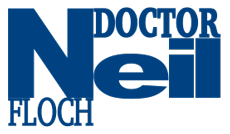Incisionless Solution for Acid Reflux
(TIF®; TRANSORAL INCISIONLESS
FUNDOPLICATION WITH ESOPHYX)
No More Pills. No More Pain. No Scars.
Meet Chris and See His Story
THE PROCEDURE
This revolutionary new state-of-the-art procedure is an incisionless solution for the treatment of moderate to severe GERD (gastroesophageal reflux disease). Dr. Neil Floch is a pioneer in the high tech concept of medicine and is one of the relatively few surgeons in Connecticut, New York and New England that has the training and expertise to perform this procedure. TIF has been designed to correct GERD by treating the underlying cause of it rather than manage it. It corrects the root cause of GERD, an anatomic deficiency at the gastroesophageal junction. Performed with the innovative EsophyX surgical device, the procedure reconstructs a durable antireflux valve and tightens the LES (Lower Esophageal Sphincter), reestablishing a barrier to reflux and restoring the competency of the gastroesophageal junction. The result is the effective elimination of GERD because the body’s natural protection against reflux is restored.
TIF is the first incisonless NOS (Natural Orifice Surgery) procedure based on the long-established surgical principles of the gold standard conventional reflux surgery procedures. As a low risk solution, TIF is often appropriate for a wide range of GERD sufferers, including those who:
- No longer adequately respond to, or are dissatisfied with pharmaceutical therapies
- Are experiencing heartburn or non-heartburn symptoms of GERD
- Are concerned about long-term effects of a lifetime of taking pills
TIF is performed safely, quickly, and with minimal patient downtime. The procedure is called a Natural Orifice Surgery (NOS) procedure because the device is introduced into the body through the mouth, rather than through an abdominal incision. Performed under general anesthesia, the EsophyX device is introduced into the mouth and advanced into the esophagus under visualization of a video camera inserted down the central shaft of the device. The device forms and fastens several tissue folds to reconstruct a robust antireflux valve at the junction of the esophagus and the stomach, resulting in the effective elimination of GERD. The device places 12 –20 non-absorbable stitches through the esophagus and stomach. Since there is no incision, there is little pain, no scarring, and only a short recovery period. Symptom relief is generally immediate.
TIF VERSUS PHARMACOLOGICAL THERAPY
TIF is the first procedure that provides an incisionless anatomical solution to a disease that today is typically treated with antisecretory medications, either PPIs (proton pump inhibitors) or histamine receptor antagonists (H2 blockers). GERD is a progressive disease, and the pharmaceuticals typically lose the effectiveness over time. GERD sufferers today are also concerned about the well-known adverse effects of long-term use of PPIs, including osteomalacia (inadequate absorption of calcium and other minerals into the bones, essential to bone health). Since pharmacology therapy does not treat the underlying root cause of reflux, the deteriorated anatomy of the antireflux barrier, life-long medication therapy is required. Add to all that, lifestyle changes such as special daily diets and pill regimens, and having to reduce or eliminate activities like playing sports and its easy to see why many patients are looking for a safe, effective alternative to pharmaceutical therapy.
BENEFITS OF TIF
- Allows for the effective long-term solution for GERD
- All patients discontinued medication after the TIF procedure
- No external skin incisions – no scarring
- No internal cutting or dissecting of the natural anatomy – more rapid recovery – back to a normal life
- Eliminates heartburn in over 85% of patients
- Gets 79% of patients off PPIs 2 years after the procedure
- Improves quality of life score by 64% over PPIs (sleeping, late night eating, food choices, etc.)
- Reduces hiatal hernia in 89% of patients
- Fewer adverse events and complications
- Does not limit future treatment options
- Can be revised if required
- Eat or drink the foods you want when you want
- Sleep the way you desire
RISKS OF TIF
- TIF has been proven safe in thousand of procedures worldwide. To date, side effects have been minimal.
- Reaction to anesthesia
BEFORE SURGERY
Please contact your insurance company to determine your benefits. If you require help, one of our patient advocates will assist you. Our surgeons will pre-screen you and your condition will be thoroughly analyzed to make certain that you are an appropriate candidate for the procedure. Blood tests will be ordered as well as any other tests that our surgeons feel are necessary in evaluating your condition and eligibility.
DAY OF SURGERY
PRE-SURGERY – TIF is performed under general anesthesia and will require you not to eat or drink for several hours prior to the procedure. The procedure itself will generally take 90 minutes.
You will report to a pre-operative area where a nurse will review your chart and make certain that all of the necessary paper work is correct and present. Dr. Floch will meet with you, discuss the process, and answer any questions you may have. The anesthesiologist will conduct a pre-operative interview including questions concerning your medical history. Once everything has been confirmed and you are ready to proceed, the anesthesiologist will begin the IV. Then it’s off to the operating room where the anesthesia is administered and the operation is performed. TIF is performed under general anesthesia so you will be asleep for the entire procedure.
POST SURGERY – After the surgery is completed, you will be taken to a recovery unit where your recovery will be monitored by the nursing staff. You can anticipate spending one night in the hospital. However, this will depend on your condition and our surgeon’s evaluation. No one is sent home unless our surgeon is completely comfortable making the decision to do so. If it is determined that there is a need to keep you for an additional day, or days, you will remain in the hospital. You must provide for someone to drive you home when you are discharged. Generally the TIF requires a one-night stay.
AT HOME
WHAT CAN I EXPECT?
- Most patients can return to work and most normal activities within a few days.
- Patients should expect to experience some discomfort in their stomach, chest, nose and throat for the first few days to a week
after the procedure. - Patients will be asked to restrict physical activity for the first week and will be given dietary guidelines to help maximize their success while the tissue heals.
WHEN SHOULD I CALL THE DOCTOR
It is not often the case, but you may experience symptoms other than general discomfort and mild pain. If the following symptoms persist than we
ask that you call us:
- Abdominal swell or pain that continues to increase
- Persistent nausea and vomiting
- Continuous chills or a continuous fever of 100
- Drainage from the incisions
- Constant cough or shortness of breathe





